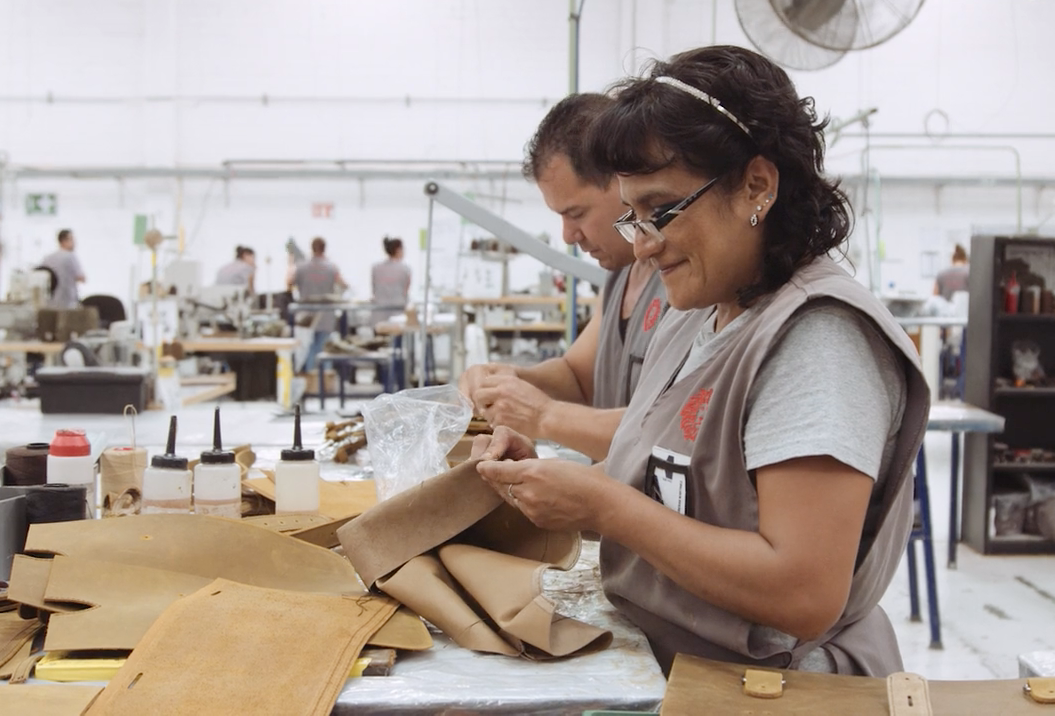When David Munson was 19 years old, he went on a missions trip and was sure he had discovered his ultimate vocation. “I just knew I wanted to do ministry for the rest of my life,” he says.
Soon thereafter, he moved to Mexico to teach English as a way to kickstart his life in foreign missions. Yet through a range of unexpected encounters, he found himself designing leather products and selling them out of his truck. The weirdest part: It was thoroughly fulfilling.
“I remember laying on the floor in Juarez and I was like, ‘That’d be cool if I could make this into a real business…but I have to do ministry so I guess I can’t do that,’” David recalls. “I was kind of stupid.”
The idea would eventually evolve into Saddleback Leather Co., now a thriving leather products business based in Leon, Mexico. It is also very much a ministry.
In a short film from Seattle Pacific University’s Faith & Co. project, we get more of the backstory of Saddleback, as well as a taste of the broader Christian vision that David and his wife Suzette bring to the business and their community.
“I really don’t understand why your faith has to be separate [from the business],” they explain. “God cares about beauty. He cares! God makes and creates beautiful things, and so we use really good, high-quality materials. We spend a lot more on our materials because we want things to last. Everything God does is quality—no exceptions.”
While Munson may not have seen the connection in his youth, he now sees that quality craftsmanship can play a powerful role in pointing to our creator, whether among the creativity of the craftsmen themselves or in the lives of the consumers they serve through beauty and functionality.
Indeed, in putting hands to nature and transforming it well, we partake in something rather profound. “The forms of work are countless, but the typical one is work with the hands,” they write in Faithful in All God’s House. “The Bible has reference to the sower, to the making of tents and of things out of clay, to tilling the fields and tending the vine. Handwork makes visible the plan in the mind, just as the deed makes visible the love in the heart.”
But the ministry of Saddleback isn’t only found in its high-quality products. They also view their business as a mechanism for serving people and loving them well. “We are all about quality,” says Suzette. “We are all about reaching people and loving on people. The business has allowed us to speak into peoples’ lives that I know we would have never had the opportunity to do that… People contact me and it opens a door to love on people very easily.”
This heartbeat of love and service plays out in mundane interactions with employees and customers, but it also feeds into key business decisions and objectives. For example, the Munsons felt a clear spiritual direction to open a Christian-based daycare for the children of their employees—free of charge. When they began offering the service, an employee approached them in tears, asking for the business rationale. Unlike the typical press releases we see about “employee retention” and “staying competitive,” the Munsons based their decision on something different. “It’s because God loves you so much,” Munson explained to the man, “and he loves you so much he wanted your family to be whole, and so he put it inside of us to do that. So I can’t help it. I want to.” The beauty, of course, is that it’s also bound to make economic sense for their culture and community over the long-term.
There’s plenty of “common grace” in Saddleback Leather’s business—goodness and beauty that’s available to all. But this heartbeat of quality and service, and a distinctively Christian love, that makes all the difference to employees and customers alike.
Like the Munsons, many of us “want to do ministry for the rest of our lives.” We feel “the call.” Yet also like Munson, the road of faithfulness will likely look different than we might expect. For many of us, that ministry will look less like “foreign missions” and more like Christ-transformation in business, entrepreneurship, and creative economic service.
Image Credit: Faith & Co.


